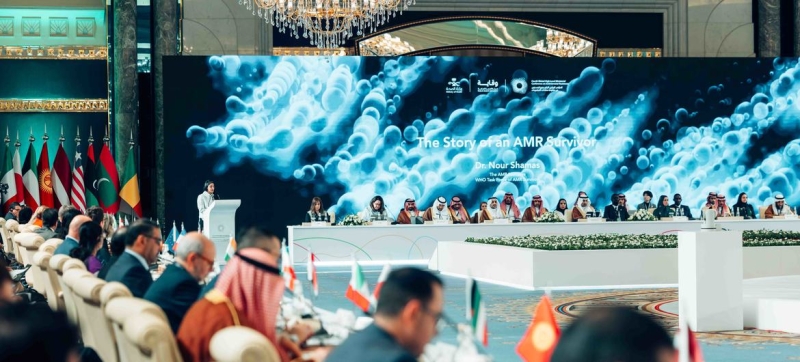
Antimicrobial Resistance Conference in Jeddah Jeddah Conference Ends with Global Commitments to Combat Antimicrobial Resistance Health
The 4th Global High-Level Ministerial Conference on Antimicrobial Resistance (AMR) ended in Jeddah on Saturday with commitments. These represent practical steps that stakeholders can take to tackle the problem.
The host country’s Minister of Health, Saudi Arabia’s Fahad Al-Jalajel, said the conference’s results provide “essential building blocks” for countries and international bodies to take meaningful action to combat antibiotic resistance, and that they build on the related Political Declaration adopted at a high-level meeting of the UN General Assembly in New York a few weeks ago.
The commitments highlight the role of the Quadripartite Joint Secretariat on AMR, which includes the Food and Agriculture Organization of the United Nations (FAO), the United Nations Environment Programme (UNEP), the World Health Organization (WHO) and the World Organisation for Animal Health (OIE). They also call for the creation of a new “biotechnology bridge” to spur research, development and innovation to find solutions to this global problem.
Minister Al-Jalajel announced the establishment of an AMR training centre and a regional antimicrobial access and logistics hub in Saudi Arabia to facilitate global collaboration and improve access to essential antimicrobials and diagnostics.
Antimicrobial resistance occurs when microbes develop the ability to defeat the drugs designed to kill them. It spreads among people, animals and the environment and can lead to deadly infections.
Welcoming the Jeddah Commitment, Jacqueline Alvarez, head of UNEP’s Chemicals and Health Division, said the outcome document was an example of successful multilateral cooperation and “the benefits of working together across sectors.”
She added: “The Jeddah Commitment brings together everyone who has a role [in addressing the problem] to take joint action.”
Alvarez noted that countries have different capacities to tackle antimicrobial resistance and the commitments should help developing countries. “We cannot leave anyone behind,” she told UN News.
